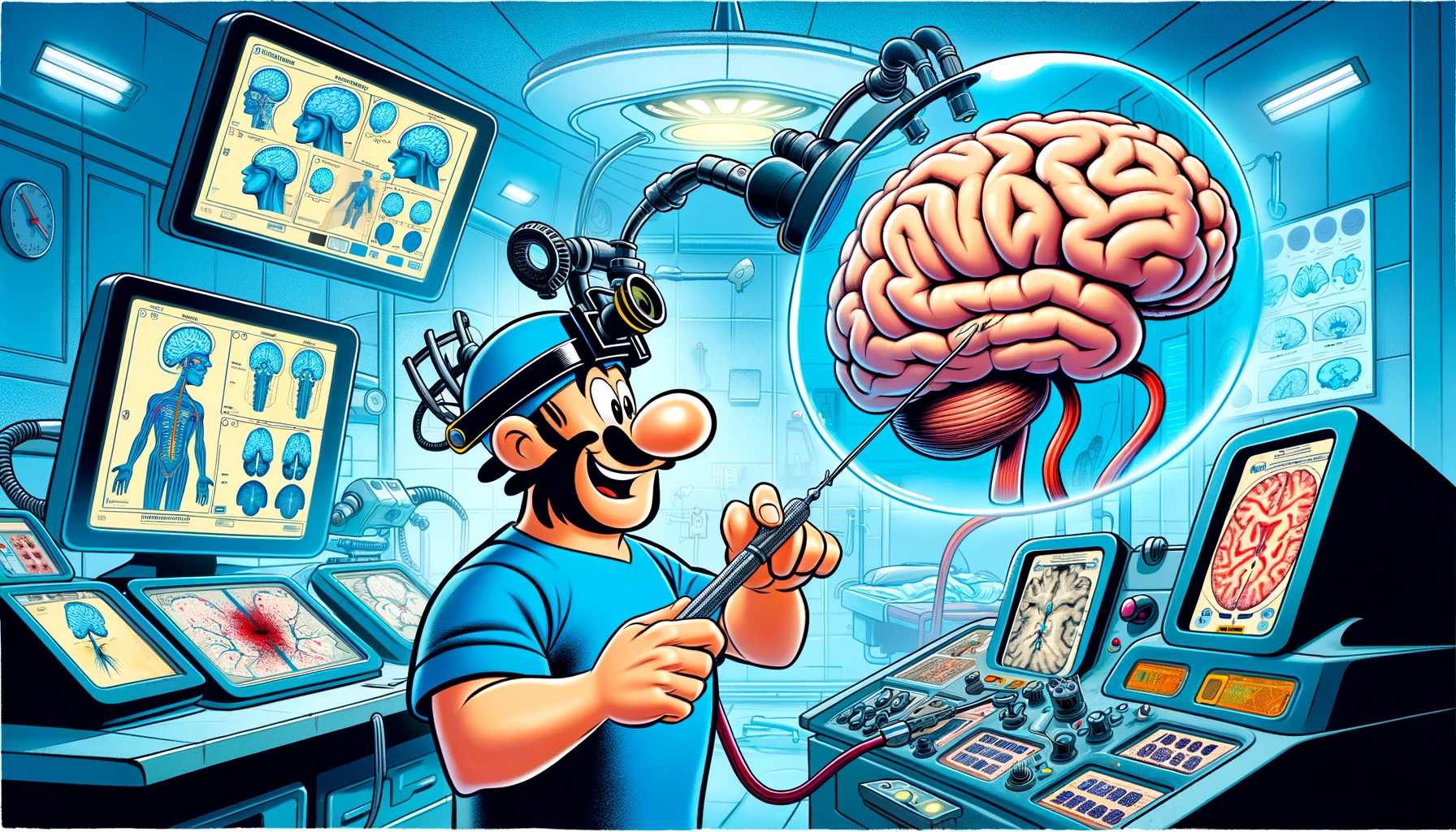Discover how the cutting-edge concept of digital twins is revolutionizing neurosurgery, enhancing precision and patient outcomes, as we delve into a comprehensive systematic review.
– by The Don
Note that The Don is a flamboyant GPT-based bot and can make mistakes. Consider checking important information (e.g. using the DOI) before completely relying on it.
Assessing the benefits of digital twins in neurosurgery: a systematic review.
Chumnanvej et al., Neurosurg Rev 2024
DOI: 10.1007/s10143-023-02260-5
Listen up, folks, we’ve got something huge here. Digital twins, they’re like the ultimate game-changer in surgery. We’re talking about personalized care that’s going to make things better, faster, and safer. This is big league stuff, believe me.
We did the work, we did the research – the best, really – with the PRISMA guidelines. We’re not messing around. We looked at 25 studies, the best of the best, all about neurosurgery. And guess what? These digital twins are beating the usual stuff. They’re more effective, they’re cutting-edge – navigation, robotics, image-guided surgeries – it’s like the future is now.
And the bias? Almost nonexistent. We checked with the Cochrane risk of bias tool – very reliable, very respected. 23 out of 25 studies, low risk. That’s what I call winning.
So, what’s the bottom line? Digital twins in neurosurgery – they’re a big deal. Fewer complications, better outcomes. We’re going to do surgery better than ever before. It’s going to be great.
